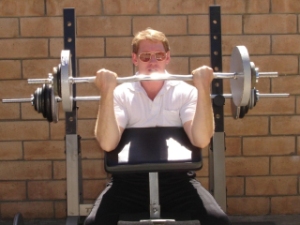Join the Rebellion
I just read a wonderful little article in the Wall Street Journal. It described a rebellion in the world of basic science education. It seems that the trend for schools, in an attempt to make science more "accessible" to a broader array of students, to "dumb" down science classes has been recognized by thinking teachers and parents as a flawed solution to a serious problem.
Of course the schools were trying to alleviate a real problem. We will be facing a shortage of scientists and engineers in the near future, a shortage that will be filled by trained workers from elsewhere. Obviously we need more students in science and math classes. The school's solution: make science easier so more students can succeed at it. Unfortunately, this solution ignores the reality that we need a solution that works beyond school. When our students get out of school they face competition in the real world. Results depend on cutting edge science, and that won't be done by young workers whose scientific depth is measured in microns due to their "no math" science classes that they aced in school.
We will be facing a global economy with global competition. Those that master math and science will win that competition, and we make it alot harder for our students to master such subjects when we avoid presenting them with intellectual challenges just so more students can "succeed". Such success is even recognized by newly included students as shallow and so fails even to boost "self esteem", which I suspect is the rationale behind this dumbing down.
Watering down science and math courses is really no different than training your football team against simulated opponents represented by little Bozo the clown punching bags on the field.
Happy to join the rebellion, I'll have to do the same as many other parents, teach math and science at home after school. That leaves us with the same dillemma we faced before public education: only those whose parents already have the skills will be able to learn them.
-Troy
troy@starkeffects.com
http://www.starkeffects.com
Of course the schools were trying to alleviate a real problem. We will be facing a shortage of scientists and engineers in the near future, a shortage that will be filled by trained workers from elsewhere. Obviously we need more students in science and math classes. The school's solution: make science easier so more students can succeed at it. Unfortunately, this solution ignores the reality that we need a solution that works beyond school. When our students get out of school they face competition in the real world. Results depend on cutting edge science, and that won't be done by young workers whose scientific depth is measured in microns due to their "no math" science classes that they aced in school.
We will be facing a global economy with global competition. Those that master math and science will win that competition, and we make it alot harder for our students to master such subjects when we avoid presenting them with intellectual challenges just so more students can "succeed". Such success is even recognized by newly included students as shallow and so fails even to boost "self esteem", which I suspect is the rationale behind this dumbing down.
Watering down science and math courses is really no different than training your football team against simulated opponents represented by little Bozo the clown punching bags on the field.
Happy to join the rebellion, I'll have to do the same as many other parents, teach math and science at home after school. That leaves us with the same dillemma we faced before public education: only those whose parents already have the skills will be able to learn them.
-Troy
troy@starkeffects.com
http://www.starkeffects.com


0 Comments:
Post a Comment
<< Home